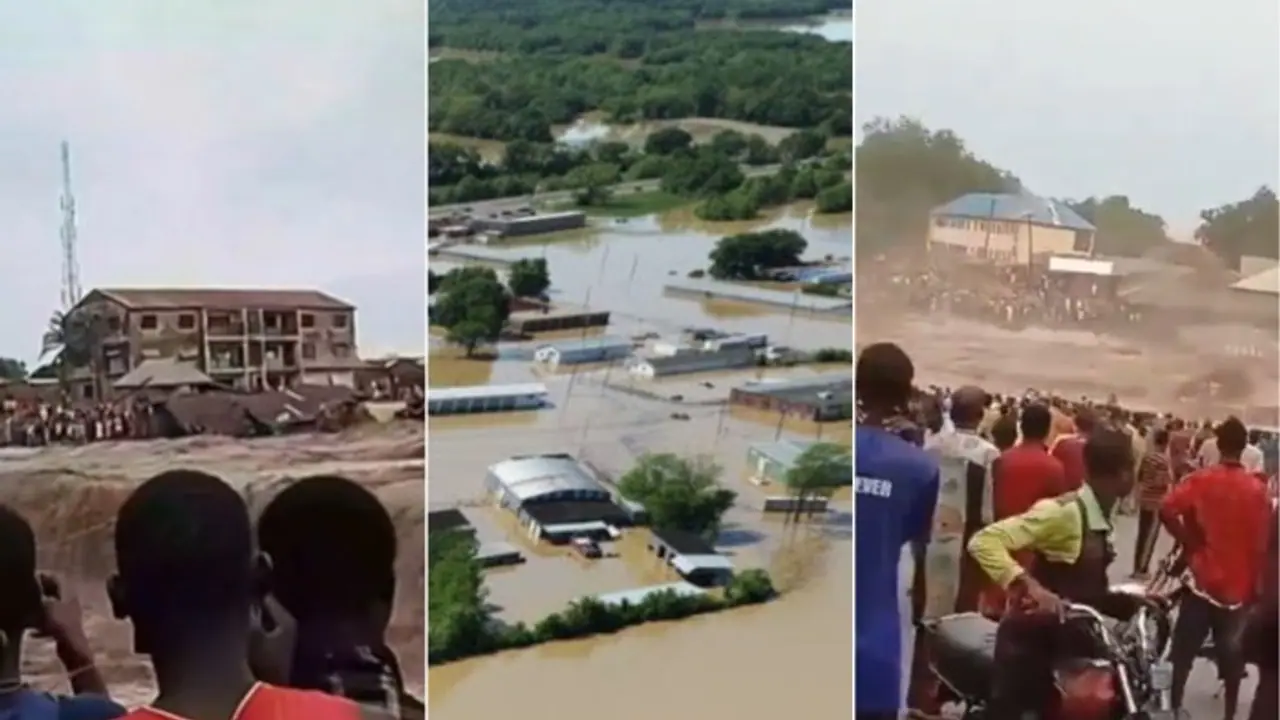Torrential rains and a dam collapse submerged Mokwa in Nigeria’s Niger State, killing at least 111 people. Rescue operations continue as officials warn the death toll may rise. Seasonal floods regularly devastate the region.
At least 111 people have died after heavy floods swept through Mokwa, a busy market town in central Nigeria’s Niger State. The disaster followed hours of heavy rainfall and was made worse by the collapse of a nearby dam, Associate Press quoted an official.

Husseini Isah, head of the emergency operations office in Minna, the state capital, confirmed the rising death toll. “The number keeps rising,” he told the Associated Press on Friday. “But at the last count, 88 bodies had been recovered.” Hours later, authorities confirmed at least 111 deaths.
Rescue teams are still working in the area to find survivors and recover more bodies. Many residents remain missing, and officials fear the final toll could be even higher.
Mokwa is an important town where traders from Nigeria’s south meet farmers from the north. The floods have not only taken lives but also disrupted trade and daily life in the region.
Residents say the situation became worse when a dam in a nearby town collapsed under the pressure of nonstop rainfall. Water rushed into homes, markets, and roads, trapping many people and sweeping others away.
This is not the first time Nigeria has faced such flooding. Every year, seasonal rains cause rivers like the Niger and Benue to overflow, putting nearby communities at great risk.
Last September, a similar disaster struck the northeastern city of Maiduguri, where heavy rains and a dam failure led to major flooding. That incident killed at least 30 people and forced millions to leave their homes. It also made the region’s ongoing humanitarian crisis, caused by the Boko Haram conflict, even worse.
Officials are urging residents in low-lying and flood-prone areas to move to safer ground. They also called for better early warning systems and stronger infrastructure to prevent such tragedies in the future.
Emergency teams and aid workers continue their efforts in Mokwa, but many roads remain blocked, making rescue work difficult. The government has promised to provide support to affected families.
As climate change increases the intensity and frequency of extreme weather, experts warn that such disasters may become more common across Nigeria and other parts of West Africa.


